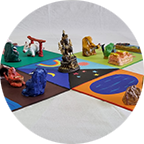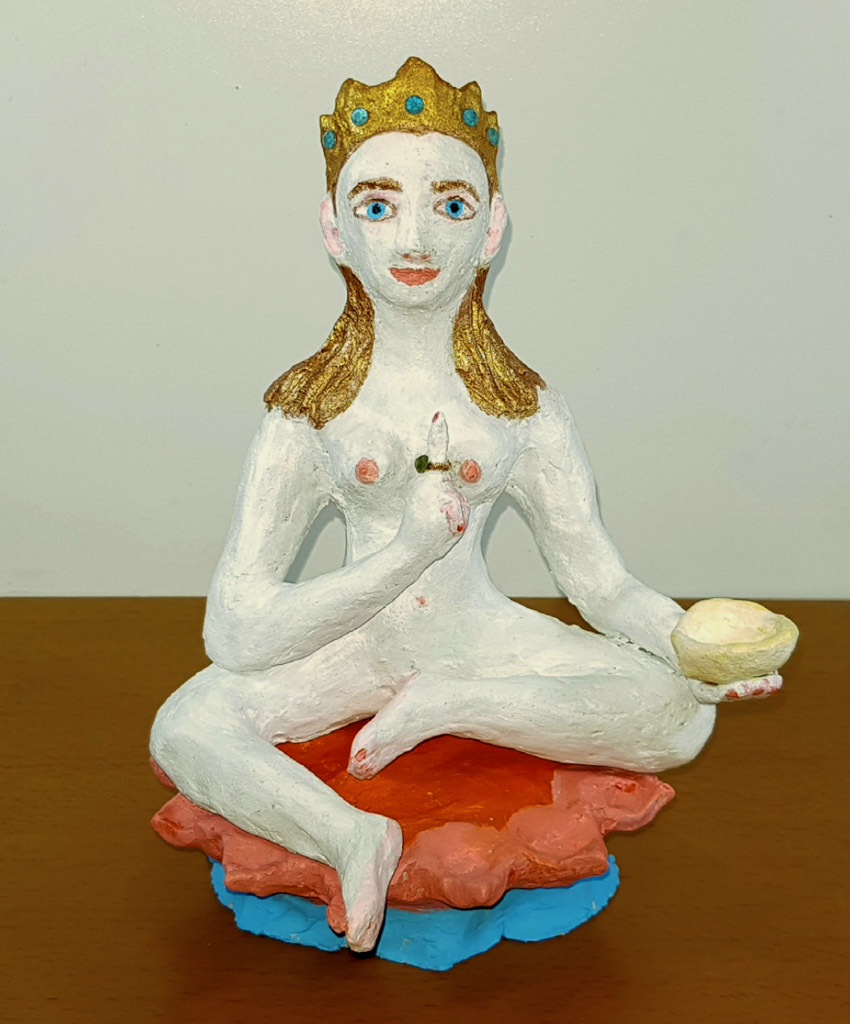Author: Vladimir Pyatsly
Translation: Natasha Tsimbler
I often worked alongside other elder care workers. Many were rude, unfriendly, envious and greedy, but there were also those who displayed boundless patience, kindness, and generosity. This kind of work is, in itself, a form of suffering. Those who undertake it face an inner choice: to either curse life and others for their place at the bottom of the social ladder or to view their labor as a form of monastic asceticism, undertaken for a higher purpose.
Those who choose to accept their work as asceticism often do so out of a certain, even if vague, sense of unity with all living beings, including the suffering individuals they care for.
In my early days in elder care, I discovered that the town I thought I knew well harbored another, hidden world – a settlement inhabited by people who rarely left their apartments. These people were almost never seen on the spacious streets and squares of my town. This hidden world resembled an underworld more than it did part of human society. Many families with severely ill members also didn’t realize that their misfortune wasn’t confined to their own homes but was part of a much larger, unseen suffering.
I also noticed that experience was not the defining factor. Patience and an appropriate attitude toward suffering were demonstrated not only by the best medical staff and some elder care workers but also by relatives of the sick, their neighbors, and even casual passersby. Reflecting on this, I realized that an ordinary, worldly mind, limited by notions of one’s own body and name, is insufficient to properly approach suffering, aging, and dying. To find the path of right action in this hidden settlement, which exists beyond the usual human concepts of well-being, one must discover within oneself the multifaceted, many-armed, invincible mind of a deity – one that perceives the transience of both happiness and sorrow.
The awareness of a deity’s presence in one’s life is the most beautiful and perfect fruit of asceticism. I recall a conversation with a woman who cleaned an apartment several times a week where chaos reigned, with feces and food scraps smeared across the floor, bed, and even the dining table. Sometimes, while cleaning, she would take on part of my job as well. When I offered her a small amount of money as compensation for her trouble, she firmly refused, saying, “I don’t want to lose the blessing by accepting it in money!”
Author
Author: Vladimir Pyatsly
Translation: Natasha Tsimbler
I often worked alongside other elder care workers. Many were rude, unfriendly, envious and greedy, but there were also those who displayed boundless patience, kindness, and generosity. This kind of work is, in itself, a form of suffering. Those who undertake it face an inner choice: to either curse life and others for their place at the bottom of the social ladder or to view their labor as a form of monastic asceticism, undertaken for a higher purpose.
Those who choose to accept their work as asceticism often do so out of a certain, even if vague, sense of unity with all living beings, including the suffering individuals they care for.
In my early days in elder care, I discovered that the town I thought I knew well harbored another, hidden world – a settlement inhabited by people who rarely left their apartments. These people were almost never seen on the spacious streets and squares of my town. This hidden world resembled an underworld more than it did part of human society. Many families with severely ill members also didn’t realize that their misfortune wasn’t confined to their own homes but was part of a much larger, unseen suffering.
I also noticed that experience was not the defining factor. Patience and an appropriate attitude toward suffering were demonstrated not only by the best medical staff and some elder care workers but also by relatives of the sick, their neighbors, and even casual passersby. Reflecting on this, I realized that an ordinary, worldly mind, limited by notions of one’s own body and name, is insufficient to properly approach suffering, aging, and dying. To find the path of right action in this hidden settlement, which exists beyond the usual human concepts of well-being, one must discover within oneself the multifaceted, many-armed, invincible mind of a deity – one that perceives the transience of both happiness and sorrow.
The awareness of a deity’s presence in one’s life is the most beautiful and perfect fruit of asceticism. I recall a conversation with a woman who cleaned an apartment several times a week where chaos reigned, with feces and food scraps smeared across the floor, bed, and even the dining table. Sometimes, while cleaning, she would take on part of my job as well. When I offered her a small amount of money as compensation for her trouble, she firmly refused, saying, “I don’t want to lose the blessing by accepting it in money!”

